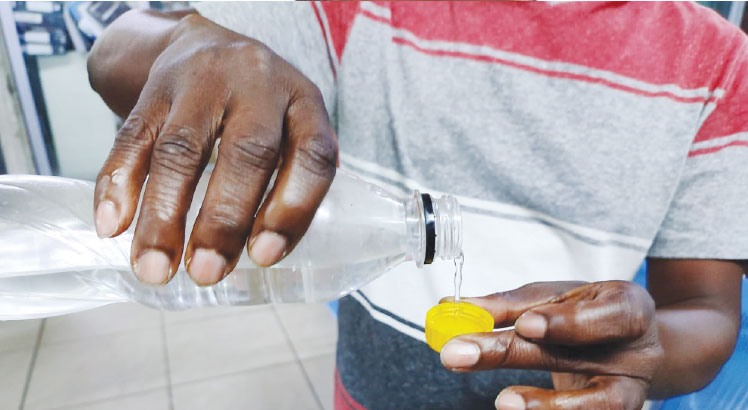Demand surges for illicit distil
Demand for illicit distil known as Ambuye Nditengeni linked with deaths of eight imbibers in Blantyre has increased and its price doubled despite police threats to get rid of dealers.
The Nation spot-checks in Blantyre yesterday established that the price for the distil has risen by about 120 percent from K300 per 200 millilitre measure to K700. In some parts of the city, the same measure, known on the street as kapwanthi, has jumped from K400 to K800.
The checks were conducted in Manase, Mpemba, Machinjiri, Ndirande, Mbayani, Wenela Bus Depot, Blantyre Bus Stands and Chirimba.

At a spot in Manase Township where eight people died between Friday night and Monday this week, the price of kapwanthi has jumped from K400 to K800 while at Mpemba Trading Centre, it was selling at K700 from K300.
A shebeen regular in Limbe, who opted for anonymity, said the distil is popular among low-income earners, especially menial workers who carry heavy loads.
“It is very cheap. For K500, we get kapwanthi [the 200 mililitre measure] and it makes you get drunk quick. It is volatile and it does not take long for those who pass out to come around after a short while,” said the imbiber.
He said swigs of the draft, also known by other names such as magagada, mtaya njinga, zophera anyani and m’kalabongo helps the menial workers and other low-income earners to relieve their physical and mental stress. He said the ingestion of the distil is known on the street as kudzibaya, literally meaning injecting oneself.
During the check, The Nation established that most spots selling the liquor in Limbe open as early as 5am and do not close until 7pm when police start sweeping exercises for vendors and others.
At Luwanda market in Machinjiri, there are also joints selling magagada.
A frequenter at one of the numerous shebeens at Chi Bini, named after the Blantyre City Council’s location of a refuse skip from the market, said magagada sellers dilute the distil they get from unspecified vendors in Limbe central business district.
He said shebeen owners dilute one litre of the stuff to get 20 litres, which they sell to imbibers.
Said the regular: “They bring the undiluted stuff in 20-litre gallons and dilute one litre to get 20 litres which they sell to their customers who are mostly those who do manual work like carrying heavy loads, those who draw sand from the river and small-scale quarry stone miners.
“Some even complain that this magagada is not potent enough but you will see the signs with swollen and bruised faces because they mostly fall head first when drunk.”
This comes at a time police threatened to confiscate the illicit liquor and arrest people selling the product.
In an interview yesterday, South West Police Region spokesperson Joseph Sauka said the operation to confiscate the illicit product on the market is still underway.
He said police have arrested two more people suspected of trading in liquor products believed to have poisonous contents. This brings the number of suspects to three.
When put to him that the illicit product is still available on the market, Sauka said: “If they are selling then they are selling them secretly. But it is an operation that we cannot complete at once. The operation is still ongoing and we are hopeful that we will confiscate all these products.”
Meanwhile Blantyre District Health Office (DHO) spokesperson Chrissy Banda said three out of four people that were admitted to Queen Elizabeth Central Hospital after consuming the alcohol in question have been discharged.
She said one person is still in intensive care unit at the referral hospital and the death toll is still at eight.
Preliminary findings by Blantyre DHO on Monday showed that the eight died due to poisoning.
Sources at the referral hospital indicated that preliminary findings show that the victims consumed methanol.
According to methanol.org, methanol is a chemical building block for hundreds of everyday products, including plastics, paints, car parts and construction materials.
It is also a clean energy resource used to fuel cars, trucks, buses, ships, fuel cells, boilers and cook stoves.
Ingestion of methanol may cause a wide range of adverse health effects such as headache, dizziness, agitation, acute mania, amnesia, decreased level of consciousness, including coma, and seizure.






Some of the people who consume this liquor are the law enforcers. Its very difficult to capture the main culprits.
The law enforcers know the source very well and are able to locate them easily. Tisanamizanepo apa. Even the MBS know the people who buy and sell the methanol.
What we’re doing here is a blame game basi.